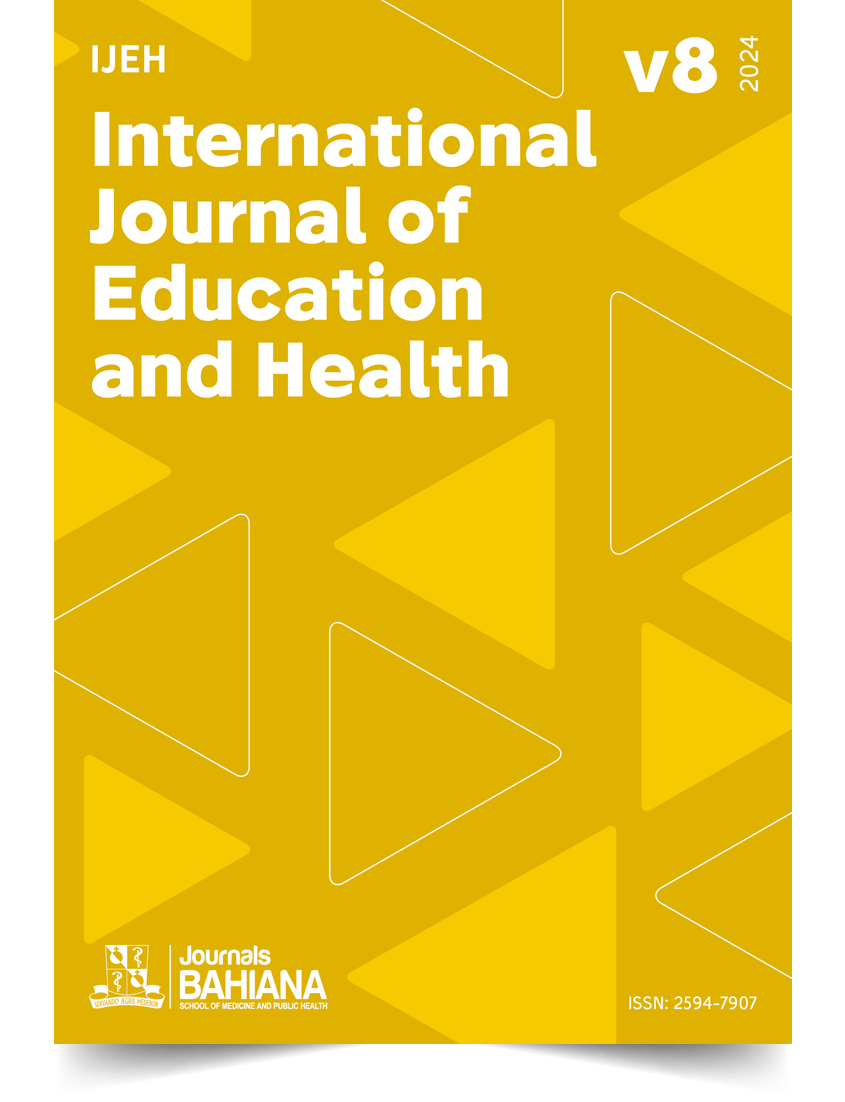The effectiveness of virtual journal clubs on evidence-based practices application
DOI:
https://doi.org/10.17267/2594-7907ijeh.2024.e5667Keywords:
Clubes de revistas virtuais, Baseados em Evidências, Profissões de Saúde, Terapia OcupacionalAbstract
INTRODUCTION: This study examines the effectiveness of a virtual journal club (VJC) in enhancing students' understanding of evidence-based practice (EBP) and its application in occupational therapy (OT). Entry-level Master of Science (MS) and clinical Occupational Therapy Doctorate (OTD) students participated in a VJC over two semesters. The objective of the VJC is to foster group discussions in a non-threatening environment, preparing students for their future fieldwork and articulating evidence-based interventions in practice. OBJECTIVES: The purpose of this study was to examine the effectiveness of this VJC on the understanding and application of evidence-based practice. METHODS AND MATERIALS: Twenty-four entry-level MS and OTD students voluntarily took part in this study, completing pre- and post-tests using the OT-KACE survey. The OT-KACE is adapted from the Evidence Based Practice (EVP) Knowledge, Attitudes, Access, and Confidence Evaluation (KACE) developed by William Hendricson, School of Dentistry, The University of Texas Health Science Center at San Antonio. All students participated in the VJC as part of their research course sequence. RESULTS AND CONCLUSIONS: Significant improvements in understanding EBP were observed from pre to post OT-KACE assessments. EBP integration is a cornerstone of entry-level healthcare curricula. Engaging students in VJCs provides them with opportunities to explore and apply learned skills independently and collaboratively, aligning with contemporary learning preferences.
Downloads
References
(1) Hendricson WA, Rugh JD, Hatch JP, Stark DL, Deahl T, Wallmann ER. Validation of an instrument to assess evidence-based practice knowledge, attitudes, access, and confidence in the dental environment. J Dent Edu. 2011;75(2):131-144. https://dx.doi.org/10.1002/j.0022-0337.2011.75.2.tb05031.x
(2) Daly MM, DeAngelis TM. Teaching evidence-based practice across curricula—An overview of a professional development course for occupational therapy educators. Occup Ther Health Care. 2017;31(1):102-109. https://doi.org/10.1080/07380577.2016.1227892
(3) Ellington A, Janes WE. Online journal clubs to enhance fieldwork educator competency in support of student experiential learning. Am J Occup Ther. 2020;74(3):1-9. https://doi.org/10.5014/ajot.2020.035733
(4) Eusuf D, Sheldon C. Establishing and sustaining an effective journal club. BJA Education. 2021;22(2):40-42. https://doi.org/10.1016/j.bjae.2021.11.001
(5) Ilic D, de Voogt A, Oldroyd J. The use of journal clubs to teach evidence‐based medicine to health professionals: A systematic review and meta‐analysis. Journal of Evidence‐Based Medicine. 2020;13(1):42-56. https://doi.org/10.1111/jebm.12370
(6) Mark I, Sonbol M, Abbasian C. Running a journal club in 2020: reflections and challenges. Br J Psychiatry. 2021;45(6):339-0,42. https://doi.org/10.1192/bjb.2020.121
(7) McGlacken-Byrne SM, O’Rahelly M, Cantillon P, Allen N. Journal club: old tricks and fresh approaches. Archives Disability Childhood Education Practice. 2020;105:236-41. http://dx.doi.org/10.1136/archdischild-2019-317374
(8) Szucs KA, Benson JD, Haneman B. Using a guided journal club as a teaching strategy to enhance learning skills for evidence-based practice. Occup Ther Health Care. 2020;31(2):143-149. https://doi.org/10.1080/07380577.2016.1278296
(9) Wenke RJ, Thomas R, Hughes I, Mickan S. The effectiveness and feasibility of TREAT (Tailoring Research Evidence and Theory) journal clubs in allied health: A randomised controlled trial. BMC medical education. 2018;18(104):1-14. https://doi.org/10.1186/s12909-018-1198-y
(10) Beck M, Simonÿ C, Bergenholtz H, Hwiid Klausen S. Professional consciousness and pride facilitate evidence-based practice—The meaning of participating in a journal club based on clinical practice reflection. Nursing Open. 2020;7(3):690-9. https://doi.org/10.1002/nop2.440
(11) Thomas A, Saroyan A, Snider LM. Evidence-based practice behaviours: A comparison amongst occupational therapy students and clinicians. Can J Occup Ther. 2012;79(2):96-107. https://doi.org/10.2182/cjot.2012.79.2.5
(12) Kirkpatrick DL. Evaluating training programs. Virginia: ASTD; 1975.
(13) Kirkpatrick Partners. What Is The Kirkpatrick Model? [Internet]. 2024. Available from: https://www.kirkpatrickpartners.com/the-kirkpatrick-model/ Accessed January 22,2024.
(14) Accreditation Council for Occupational Therapy Education (ACOTE). 2018 Accreditation Council for Occupational Therapy Education (ACOTE) Standards and Interpretive Guide: August 2020 Interpretive Guide Version. 2020. Available from: https://acoteonline.org/wp-content/uploads/2020/10/2018-ACOTE-Standards.pdf
Downloads
Published
Issue
Section
License
Copyright (c) 2024 Beth Elenko

This work is licensed under a Creative Commons Attribution 4.0 International License.
This work is licensed under a Creative Commons Attribution 4.0 International License.



